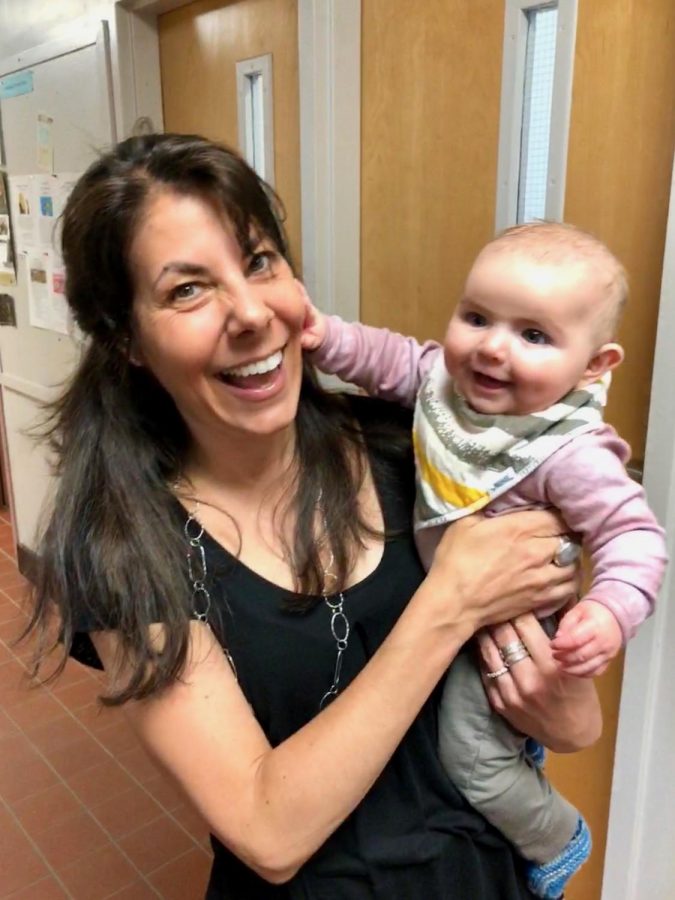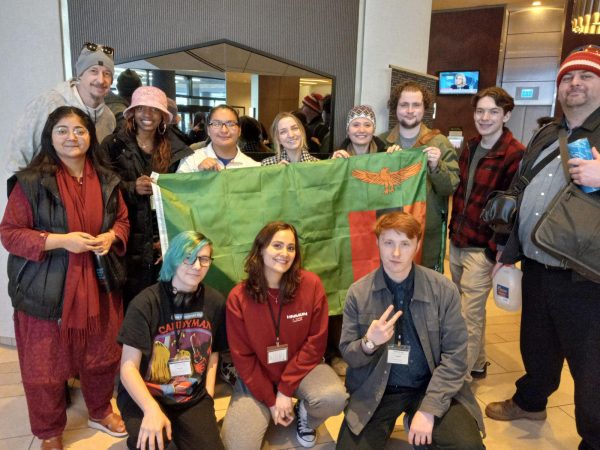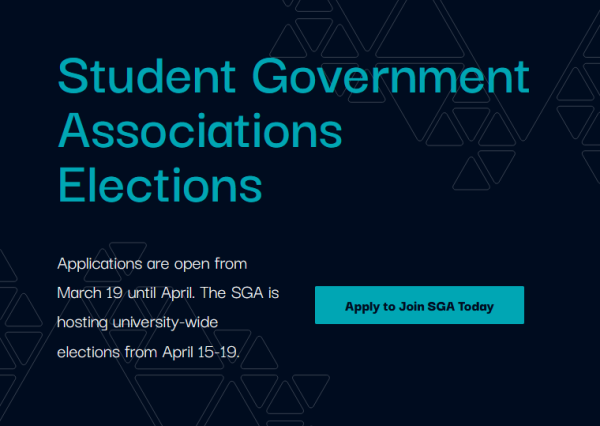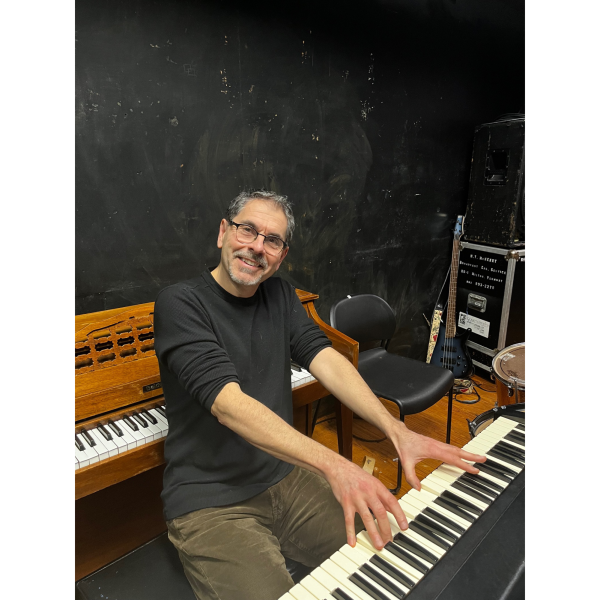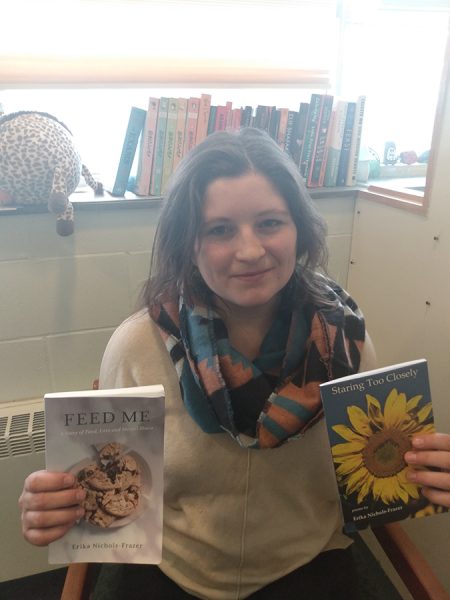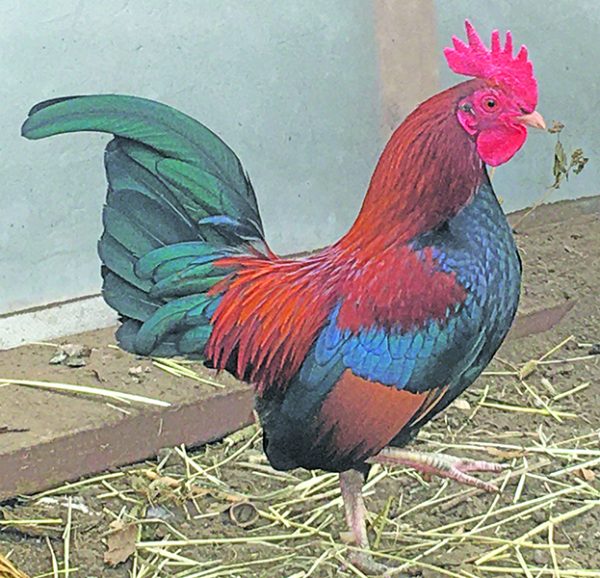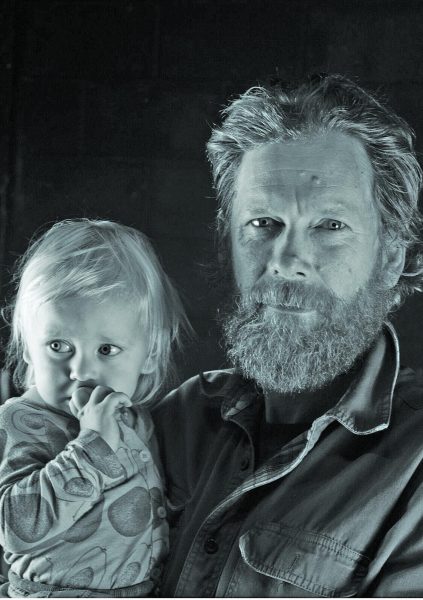Use the gas pedal!
Gina Mireault is a professor of psychology and chair of the behavioral sciences department at NVU-Johnson. She has two dogs that she adores and is eagerly awaiting her vaccination slot so she can return to some semblance of normalcy.
If you could meet with three people from history for lunch or tea, who would you be interested to meet?
Well, the first one would be my mother. She died when I was a teeny-tiny girl and I would take all three dates with her. Other than that, I’d have to think if there are historical figures who are like, “oh, I just want to sit down with that person.” I feel like I wouldn’t be the person who would have the right questions. The truth is, I would sit down with my mother, and I would talk to her for all three days. I just want to know more about her.
What’s one thing you can’t live without?
I mean, clearly my family. My children, my partner, my siblings. They’re just so important to me. I can’t live without moving. It’s really important to me. I have a pretty dedicated yoga practice. I’m also a swimmer, and I do my best thinking generally when I’m in the water. It actually terrifies me. The feeling of not being able to move.
I’ve been through two knee surgeries in the last year, thanks to a super aggressive badminton game that I was in a year and a half ago. The first knee surgery required four months of rehab, and that meant no weight-bearing on crutches. Thankfully, I had surgery the week before the pandemic.
I’ve been having to figure out how to move when you can’t move. Like, what are your other opportunities? The pool was out of the question for my leave, and also because of the pandemic for a long time, so I was out of the water for seven and a half months, but I was okay because I have yoga, and thank god I had yoga.
What’s your guilty pleasure?
It’s probably related to what I can’t live without. Sleep. I sleep a lot, and I don’t do well without sleep. I’m a sound sleeper and I make no apologies for that. I didn’t sleep when my kids were little, because I was raising kids, and they didn’t sleep as much as I do. But I also think online shopping I love too, and I think during quarantine it’s one of the only things that you can do.
Another one is when my daughter moved home, and because I was recovering from knee surgery, and she and I don’t have a lot in common, and she loves to watch TV. So, now it’s one of my guilty pleasures. During my first surgery recovery, she and I watched all of “The Office.” We watched all of “Parks and Rec.” So, I think one of my guilty pleasures is binge-watching Netflix with my daughter.
What’s one of your biggest pet peeves?
I hate when people drive slower than the speed limit. Like come on, what do you think the sign is for? Get up there. Use the gas pedal. My husband is one of those people.
I have a peeve around COVID right now. I get irrationally angry when people don’t wear their masks properly.
What are you most proud of?
I am proud of my kids, just fiercely proud of them, who they are as people, knowing they’re out in the world. And I don’t take credit for that. Like, they did all that. They just make us look good as parents. I get emotional just thinking about it.
I think that as a mother, I’m proudest of the fact that I was able to nurse both of them passed their first birthday, like that was a friggin commitment. That was so hard. And I stuck to it because I knew it was the best thing for them.
I didn’t have a mom, so there was a lot of that I had to figure out myself about what my values were as a mother. I didn’t have anything to go on. I didn’t know how hard that was gonna be, but I just thought, I’m doing this, I’m not giving up on it. That was good.
What’s your ideal Sunday?
My ideal Sunday is not having too much planned. I really am happiest when I’m working. I love to work, or just being productive. So, maybe it’s house cleaning, even though I don’t do a lot of house cleaning, not as much as I should do. But I feel good when I’m producing something, when there’s an end result. I love to work. I just get lost in that.
I hear you have a pretty extensive knowledge about dogs. Can you tell me a little about that?
Yeah. We got our first dog and she was a golden retriever. We took obedience lessons with her, just so we know how you walk your dog on a leash and that kind of thing.
I think it’s partly because Jay and I are both psychologists. He’s a clinical psychologist, and I’m an experimental psychologist, so we both know a lot about learning theory. And holy smokes, dog training is an amazing application of operant conditioning, not just applications like theory testing and hypothesis testing, so you can alter your reinforcement schedules and you can see what happens. And then, of course, dogs are free thinkers and they don’t follow the rules that you think they’re going to follow. You think they’re gonna respond to reinforcement one way, and they don’t.
About two years later, we got a second dog, and we got really involved in dog training and dog showing. We didn’t plan on it, but the trainer that we had at the time encouraged my husband, who was training our dog, to show Dinah for an obedience title.
We didn’t know what that meant. It turns out it’s a whole subculture and lifestyle. Before you know it, we had two golden retrievers, we had a minivan so we could cart them around, and we drove all over New England and eastern Canada showing them in obedience trials and agility trials.
This makes me wonder, is there a lot of crossover between studying laughing babies and raising and showing dogs?
So, it’s not so much between raising and showing the animals and laughing babies. But the animal literature and the infant literature overlap tremendously, because in most cases you have nonverbal creatures that you’re studying. So, the comparative psychologists, they’re the ones who study animals, and the developmental psychologists who study babies often employ similar methodologies.
When I was writing for the agency, I was reading the animal literature, but that also meant that sometimes they were citing studies from the infant literature. So, I was hearing about these cool readings about these cool studies with babies. And that still happens now when I’m reading the literature on infants. Sometimes that brings me into the animal literature, especially the non-human primate literature.
What’s something that people do that really makes you roll your eyes as a psychologist?
I think when I see helicopter parents, that makes me roll my eyes. You know what it is, it’s not what people do; it’s what society does. There will be these movements that come into society, and it’s just not really how life works. One was the self-esteem movement that was going on when my kids were in elementary school.
I mean, it was with good intention, but there was this whole thing about making everybody feel like they’re special. That really just makes me roll my eyes. Self-esteem comes from taking risks, and mastering them, and you can decide what the risk is.
Maybe it’s learning to swim, or maybe it’s taking the training wheels off your bike. Maybe going on your first sleepover or deciding you’re going to do gymnastics or something like that. That’s where self-esteem or doing well in school comes from. It doesn’t come from somebody telling you you’re special.
Do you see a lot of societal things like that?
I’m also surprised that people don’t understand causality. That’s what I’m surprised with, because it’s not rocket science. It’s not that hard of a concept. Something that makes me roll my eyes in that vein is what people use as evidence, and what they think is evidence. They use anecdote as evidence.
You can say “well, smoking causes cancer.” I mean technically we don’t have that evidence, but the correlation is good enough that they put it on the Surgeon General’s warning, but then somebody goes, “well, my uncle smoked cigarettes until he was 100.”
I’m just surprised, especially right now in the political climate we’ve been in the last four years and the way people use social media as though it’s factual. They rely on social media as evidence, and they rely on political figures as though they’re scientists, and that bothers the shit out of me, and you can quote me on that!
If you could do something besides being an educator and a psychologist, anything at all, what would you do?
I would be a veterinarian.
Wow, that was easy.
I could be a veterinarian. You know, the other thing I would be like to be is a paleontologist. One of those two things.
I remember at one point though, my kids asked me this question when they were maybe ten and eight. “If you weren’t a professor, what would you do?” I said I think I would have been a veterinarian, and then they both were on the cheerleader bandwagon. They were like ‘you can do it,’ and ‘you should do it.’
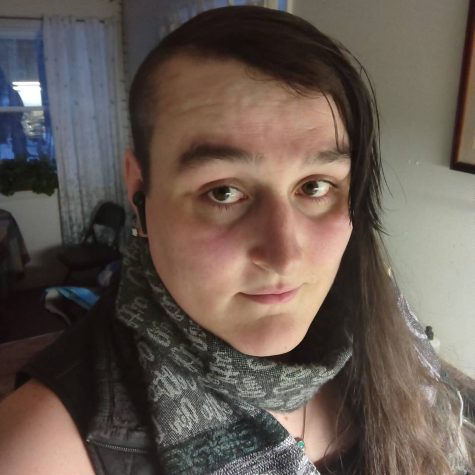
Senior, BFA Creative Writing major from Craftsbury, VT.
Resident Punk Scientist and Basement Medicine Web Wrangler.
I love science and writing, and...


